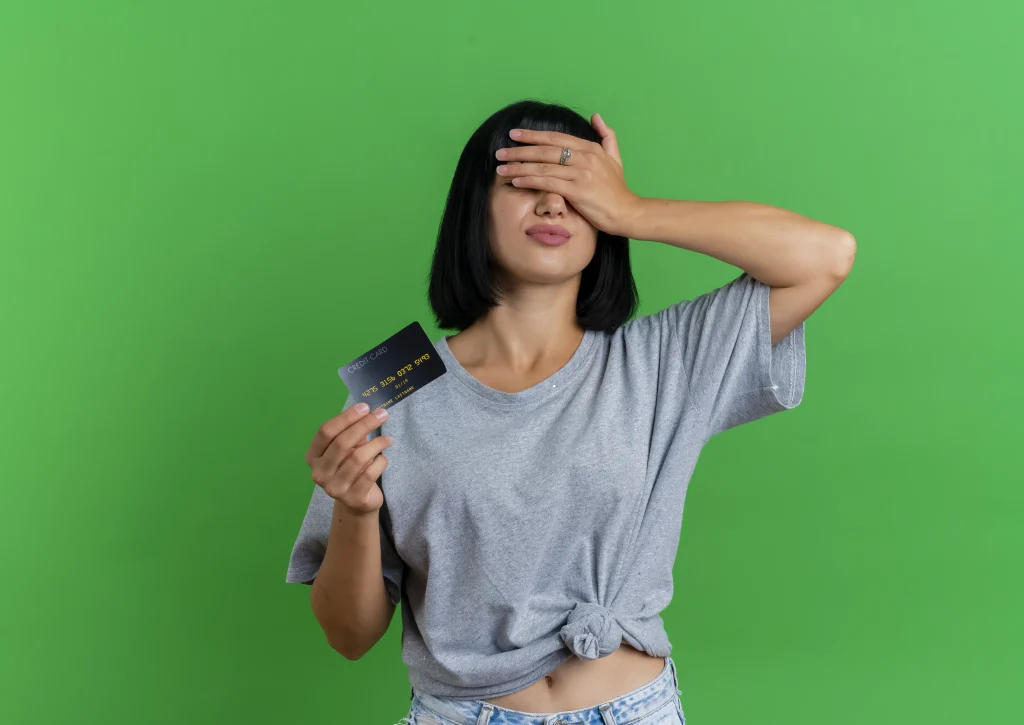
Associated Credit and Collection Bureau Phone Harassment?
Is Associated Credit and Collection Bureau (ACCB) calling you? Stop Associated Credit and Collection Bureau phone harassment. Do they threaten to take legal action or garnish your wages? Are they calling you at all hours or several times a day? Repeated debt collection calls can constitute debt collector harassment and significantly disrupt your daily life. Are they telling your family and neighbors that you owe a debt? If so what they are doing is illegal and needs to stop. You have the legal right to stop ACCB phone harassment. If a collection agency violates the FDCPA, you may be eligible to receive up to $1000.00 in statutory damages, along with covering your attorney fees.
Is Associated Credit and Collection Bureau a Scam?
According to the Better Business Bureau website, Associated Credit and Collection Bureau has been in business for 47 years. Read more here: Associated Credit and Collection Bureau Better Business Bureau.
Who is Associated Credit and Collection Bureau?
Associated Credit and Collection Bureau is a third party debt collector located in Rockledge, Florida, hired to collect debts on behalf of creditors. ACCB has been a party to a Federal Court case over 10 times related to their attempts to collect debts. They have been accused of violating consumer’s rights and illegal and harassing communication tactics to attempt to coerce a payment from the harassed consumer.
🏛️ Address: 975 Eyster Blvd Rockledge, FL 32956
📞 Phone: (321) 636-3880
Associated Credit and Collection Bureau Collection Tactics
If Associated Credit and Collection Bureau engages in any of the following tactics, you may have a case:
- ▶️ Using profanity or abusive language
- ▶️ Calling you before 8:00 a.m. or after 9:00 p.m.
- ▶️ Calling you multiple times per week
- ▶️ Talking to others about your debt
- ▶️ Calling your workplace
- ▶️ Threatening to sue you, harm you, or destroy your credit
- ▶️ Telling you or anyone else that you’ve committed a crime
- ▶️ Calling repeatedly for the wrong person
- ▶️ Failing to notify you of your right to dispute the debt
- ▶️ Trying to collect more than legally allowed
Laws prohibit debt collectors from making excessive telephone calls. Debt collector calls are limited to no more than seven calls within a seven day period. Debt collector calling beyond these limits is considered harassment and may violate federal regulations.
Associated Credit and Collection Bureau Phone Numbers
Are you receiving any harassing phone calls from any of the following numbers?
- ☎️ 321-636-3880
- ☎️ (321) 636-3880
- ☎️ 3216363880
If the answer is yes, then you are receiving calls from a known ACCB number. You may be a victim of ACCB phone harassment. The list above is not all the numbers that ACCB uses. The calls can be from different phone numbers and it still be Associated Credit and Collection Bureau calling you. Be sure to keep a record of every time you are contacted by ACCB, including the date, time, and method of contact. Contact our office right away so we can start the process to stop ACCB from calling you illegally. Above all, no one should live with harassment!

Understanding Consumer Rights
When dealing with debt collectors, it’s essential for consumers to know their rights under the law. The Fair Debt Collection Practices Act (FDCPA) is a federal law that sets strict guidelines for how a debt collection agency can contact and communicate with you. This law prohibits debt collectors from using abusive language, making false statements, or threatening you with harm or legal action they cannot take. Debt collectors are not allowed to call you before 8 a.m. or after 9 p.m., and repeated phone calls or text messages intended to annoy or harass you are considered harassment.
If you are receiving multiple calls from the same debt collector, or if a debt collector is calling you at inappropriate times, this behavior may be illegal. The law also gives you the right to dispute a debt and request written verification from the debt collector. If you make this request, the debt collection agency must stop contacting you about the debt until they provide the necessary information.
Consumers are protected from creditor harassment, including threats, profane language, and making false statements about the amount owed or the consequences of not paying. If a debt collector makes repeated calls, uses inappropriate behavior, or contacts you after you’ve asked them to stop, you may be entitled to statutory damages—up to $1,000—plus attorney’s fees and court costs if you file a lawsuit and win.
To protect yourself, keep detailed records of all phone calls, text messages, and any other contact from debt collectors. Note the dates, times, and content of each conversation. This documentation can be crucial if you need to file a complaint or take legal action.
If you believe you are being harassed by a debt collection agency, you have several actions you can take. You can file a complaint with the (CFPB) or your state’s Attorney General. You can also seek assistance from a consumer rights attorney who can help you stop the harassment and pursue compensation if your rights have been violated.
It’s also important to be aware of debt collection scams. Always verify the identity of the debt collector and the legitimacy of the debt before making any payments. Watch out for red flags such as threats of arrest, demands for immediate payment, or requests for personal information. If you suspect a scam, report it to the authorities right away.
By understanding your rights and taking proactive steps, you can protect yourself from abusive debt collection practices and ensure that you are treated fairly throughout the debt collection process.
Complaints Against Associated Credit and Collection Bureau
The following is a sample list of complaints filed against Associated Credit and Collection Bureau in the past and can be found on Pacer.gov.
- 📜 3:05-cv-00251-R Barton v.
- 📜 1:10-cv-02453-CMA-BNB Alwine v.
- 📜 6:07-cv-01430-ACC-DAB Davis et al v.
- 📜 8:08-cv-01580-SDM-MAP Long et al v.
- 📜 6:10-cv-00470-MSS-KRS Hamilton v.
Consumer Rights Law Firm PLLC
Consumer Rights Law Firm PLLC is a law firm that specializes in helping clients who are facing harassment from debt collectors in any form, including telephone communication. Rather than suffer alone, contact our office to begin the process to stop the Associated Credit and Collection Bureau harassment. Our office has been assisting consumers since 2010. We have an A+ rating with the Better Business Bureau.
If you are interested in learning more about how to safeguard yourself and prevent harassment from Associated Credit and Collection Bureau. It is important to maintain your security and protect your personal information to prevent identity theft and fraud when dealing with debt collectors. Call us at 877-700-5790 for immediate assistance or visit our website.

Success Stories
- 🏆 Matthew went above and beyond for my case against a debt collector! He handled it professionally and very quickly! Very impressed with this law firm for harassment against debt collectors! Give Matthew a call and let him help you too!
- 🏆 They get the job done! Thank you Consumer Rights Law Firm for all your help! They are extremely professional, kind and courteous! 100% should anything go wrong this is the company you would want to be on your side!
- 🏆 Derek DePetrillo is an amazing attorney! I was skeptical at first, not hopeful my case would have enough to get it settled. Right before the new year I received a call from Matt, who is also a fantastic employee of the firm, with news that my debt was waived and attorney fees were paid by the creditor. Stop receiving collection calls and MAKE the call to Consumer Rights Law Firm PLLC to get your debt resolved!
Frequently Asked Questions
1. Who is Associated Credit and Collection Bureau and why are they calling me?
Associated Credit and Collection Bureau is a debt collection agency that may contact individuals regarding unpaid debts. If they are calling you, it is likely in an attempt to collect a debt they believe you owe.
2. Is Associated Credit and Collection Bureau allowed to harass me with phone calls?
No. The Fair Debt Collection Practices Act (FDCPA) prohibits debt collectors from using abusive, unfair, or deceptive practices to collect a debt, including phone harassment.
3. What should I do if Associated Credit and Collection Bureau is harassing me by phone?
Document all communications, send a written request for them to stop, and report their behavior to the CFPB or your state attorney general. You may also consider consulting a consumer rights attorney.
4. Can I take legal action against Associated Credit and Collection Bureau for phone harassment?
Yes. If they are violating your rights under the FDCPA, you may be able to sue them for damages, including up to $1,000 in statutory damages, plus attorney fees and emotional distress compensation.
5. How do I get Associated Credit and Collection Bureau to stop calling me?
You can send them a cease-and-desist letter requesting all communication to stop. After receiving it, they are only allowed to contact you to confirm they will stop or to notify you of a specific legal action.
6. Who can help me deal with Associated Credit and Collection Bureau phone harassment?
Consumer Rights Law Firm PLLC can help. They specialize in stopping aggressive and unlawful debt collection tactics and can assist you in exercising your legal rights.
7. Can Associated Credit and Collection Bureau report debts to credit bureaus?
Yes. Debt collectors may report your debt to credit bureaus, but they must do so accurately and comply with the Fair Credit Reporting Act (FCRA).
8. How can I dispute a debt with Associated Credit and Collection Bureau?
You can send a written dispute or validation request within 30 days of their initial contact. They must stop collection until they provide verification.
9. What are my rights under the FDCPA when dealing with Associated Credit and Collection Bureau?
You have the right to be free from harassment, false statements, and unfair practices. You also have the right to dispute the debt and request validation.
10. How do I file a complaint against Associated Credit and Collection Bureau?
You can file complaints with the CFPB, the FTC, or your state attorney general’s office if you believe they violated your rights.







